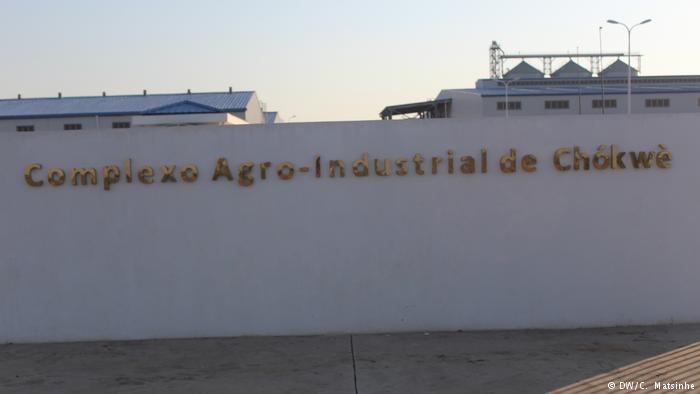Agreement signed for Mozambique to host SADC Fisheries Monitoring Centre in KaTembe
US$60 million Gaza industrial complex ceases production

DW / The industrial unit in the Limpopo valley was to process cereals and other foodstuffs
An agro-industrial complex in southern Mozambique costing 60 million dollars and inaugurated just two years ago has ceased operations, with signs of dilapidation already apparent.
The million-dollar complex does not have enough raw materials and production costs are high, prompting analysts to warns that, in times of crisis, building big projects is not enough. They must have a future and be profitable.
Mozambican president Filipe Nyusi inaugurated the Chinese-funded Chókwè Agro-Industrial Complex (CAIC) in April 2015 with great pomp and circumstance, cutting a giant red ribbon near the compound and uncovered the inauguration plaque with the Chinese ambassador at his side.

Problems since opening
But the complex has only ever operated at 12 percent capacity at best. Indian partners were expected to invest in agriculture in the region to provide the raw materials for the complex: rice, tomatoes, cashew nuts and so on. Factory director Mamed Abacar says the investors never showed up, and the CAIC ran out of raw material.
“They had two models designed: one for development and another for their own production. But the partners never came through, so the managers of the factory were forced to look for alternatives,” Abacar explains the director.
The alternative, according to Mamed, was to invest in the production of raw materials directly, but harvests fell short of what was expected because of the drought, and the cost of imported packaging from South Africa proved too burdensome.
Grand projects are a common mistake
Expenditures – on wages and electricity, for example – reached 180,000 meticais per month (about EUR 2,500), and the complex has now stopped producing altogether. It has become a burden on the state, since the complex’s majority share holder is the Institute of Management of the Participations of the State (IGEPE).
This is not a unique case, says Carlos Mhula, an analyst in Gaza province, noting a tendency in Mozambique to repeat the mistake of designing large projects. “We still continue to set up complexes, rather than the complexes setting themselves up. This is a mistake we have repeated,” Mhula says.
According to Mhula: “First, it is necessary to have intensive production of cereals, and only then build infrastructure.”
As further examples, Mhula cites the Centre for Research and Transfer of Agrarian Technologies in Mandlakazi district in southern Mozambique, and the planned Chongoene airport, projects which he says will cost the state more than they will earn.












Leave a Reply
Be the First to Comment!
You must be logged in to post a comment.
You must be logged in to post a comment.